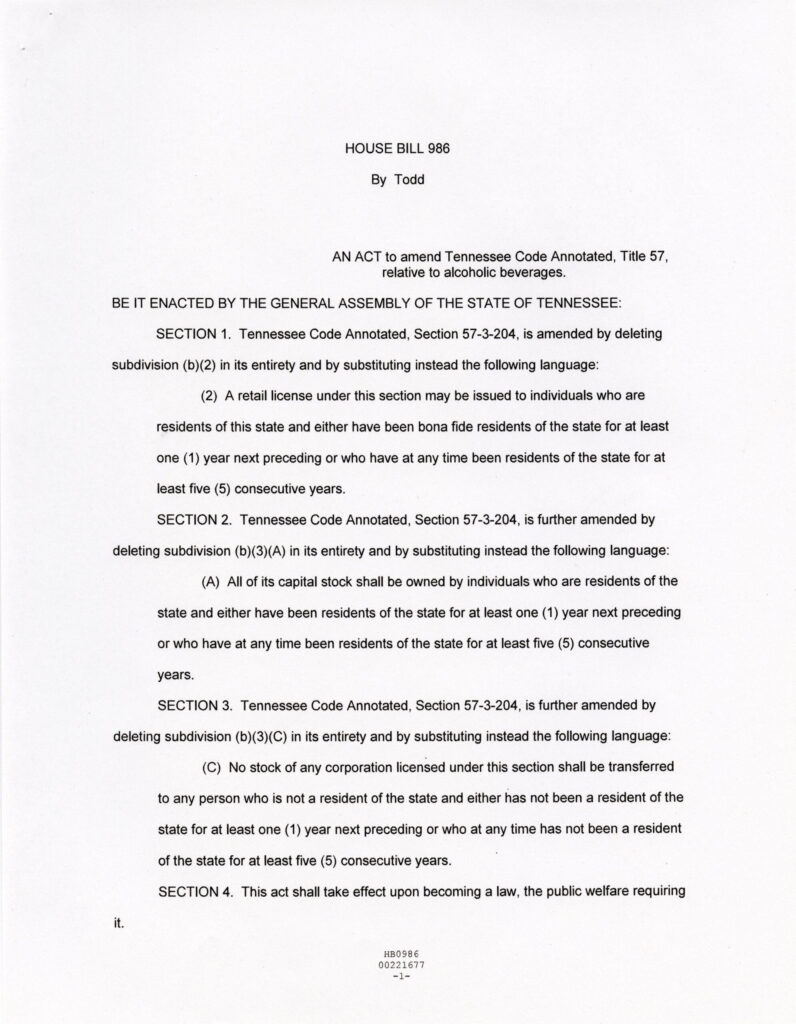This post was authored by Boden Wilson, a student worker in the Library’s Special Collections unit in Fall 2024. Boden is the student assistant for the processing project: “‘One of the Black Legislators’: Providing Access to the Tommie F. Brown Papers.”
I am a history and classics double major and a minor in historical preservation. Along with being interested in classical literature and history, I have a strong interest in intellectual, political, and cultural history. I am a student working here at UTC and started working on the Tommie F. Brown papers at Special Collections in August. This collection contains vast documentation of Dr. Tommie F. Brown’s time as both a Professor here at UTC as well as her time spent as a legislator in the Tennessee State government.
Though there are many cool and interesting objects within this collection, one of the most fascinating to me has been the legislation regarding alcohol sales and more specifically the community feedback over the broadening of where and when certain alcohols could be sold. Though obviously this part of the collection is filled with drama and scornful letters, it offers a fascinating glimpse into both the culture of Tennessee and social change within the 2000s regarding alcohol. With a series of bills on the table that could potentially broaden the sale of certain types of alcohol, many Tennesseans rejoiced and many became fearful. This proposition doubled as an interesting clash between American values.
Many of those in favor of widening alcohol sales were rooted in the belief of governmental overreach as well as the economic benefits it could bring. They viewed the state governments laws limiting sales as an overstep placed upon American citizens which limited their personal freedoms of when and where they could purchase these products. Furthermore, many argued and were convinced that the expansion of sales would be good for many businesses. Even here in Chattanooga, places of business like the Tivoli and Memorial Auditorium were projected to see an increase in sales revenue due to the potential ability to sell alcohol. However, those opposed often found their arguments grounded in religion and were worried about the potential degradation of society if these potential bills were to pass. They saw the expansion of access to these vices as dangerous particularly for children and society as a whole.
In all, getting to see these proposed bills and constituent correspondence between lawmakers was a fascinating opportunity to look at very recent social and economic changes within the state, as well as being able to view the inner workings and complexities of our local State Government.
Support for “‘One of the Black Legislators’: Providing Access to the Tommie F. Brown Papers” is provided by an Archival Projects grant from the National Historical Publications and Records Commission.


